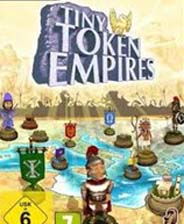
应用宝安卓版

- 文件大小:29.51MB
- 界面语言:简体中文
- 文件类型:Android
- 授权方式:5G系统之家
- 软件类型:主题下载
- 发布时间:2024-11-26
- 运行环境:5G系统之家
- 下载次数:415
- 软件等级:
- 安全检测: 360安全卫士 360杀毒 电脑管家
系统简介
Introduction to the World of Gaming

Tag: GamingWorld Introduction

The world of gaming has evolved from simple pastimes to a global phenomenon that captivates millions of players across the globe. With advancements in technology, gaming has transformed into an immersive experience that offers entertainment, education, and social interaction. This article delves into the fascinating world of gaming, exploring its history, types, and impact on society.
History of Gaming

Tag: GamingHistory Evolution

The history of gaming dates back to ancient times when people played simple games like dice and board games. The first digital games emerged in the 1950s, and the industry has since grown exponentially. The early days of gaming were marked by simple text-based games, but as technology progressed, graphics, sound, and interactivity became more sophisticated. Today, gaming is a multi-billion-dollar industry with a rich history that has shaped the way we play and interact with digital content.
Types of Gaming

Tag: GamingTypes Categories

Gaming encompasses a wide variety of genres and formats, catering to different interests and preferences. Here are some of the most popular types of gaming:
- Console Gaming: Console games are played on dedicated gaming devices like PlayStation, Xbox, and Nintendo Switch. These games often feature high-quality graphics and immersive storytelling.
- PC Gaming: PC games are played on personal computers and offer a wide range of titles, from indie games to high-end, graphically-intensive experiences.
- Mobile Gaming: Mobile gaming has become increasingly popular, with millions of players enjoying casual and mobile-friendly games on their smartphones and tablets.
- Online Gaming: Online gaming allows players to connect with others from around the world, engaging in multiplayer experiences and competitive play.
- Virtual Reality (VR) Gaming: VR gaming provides an immersive experience by placing players in a fully digital environment, often using headsets and motion sensors.
The Impact of Gaming on Society

Tag: GamingImpact Society

Gaming has had a significant impact on society, influencing various aspects of our lives:
- Entertainment: Gaming offers a unique form of entertainment that can be enjoyed alone or with friends, providing hours of fun and excitement.
- Education: Educational games have become an effective tool for teaching children and adults new skills, from language learning to problem-solving.
- Social Interaction: Online gaming has brought people together from all corners of the world, fostering friendships and communities based on shared interests.
- Economic Impact: The gaming industry generates billions of dollars in revenue annually, creating jobs and contributing to the global economy.
Challenges and Concerns

Tag: GamingChallenges Concerns

While gaming has many positive aspects, it also faces challenges and concerns:
- Addiction: Some individuals may develop an addiction to gaming, leading to negative consequences in their personal and professional lives.
- Violence: There is a concern that violent video games may desensitize players to real-world violence.
- Accessibility: Ensuring that gaming is accessible to people with disabilities is an ongoing challenge for the industry.
The Future of Gaming

Tag: GamingFuture Innovation

The future of gaming looks promising, with continued advancements in technology driving innovation. Some of the emerging trends include:
- Augmented Reality (AR): AR gaming will allow players to interact with virtual elements in the real world, creating new and exciting experiences.
- Artificial Intelligence (AI): AI will enhance the gaming experience by creating more realistic characters and dynamic environments.
- Cloud Gaming: Cloud gaming will make it easier for players to access and play games on a variety of devices without the need for high-end hardware.
In conclusion, gaming has become an integral part of our lives, offering entertainment, education, and social interaction. As technology continues to evolve, the gaming industry will undoubtedly continue to grow and shape the way we play and interact with digital content.
常见问题
- 2025-10-15 无忌射手英雄游戏中文版2024下载
- 2025-10-15 怎么样才能不当社畜:妻子的故事
- 2025-10-15 还有这种操作游戏下载
- 2025-10-15 最囧游戏3
主题下载下载排行

其他人正在下载
- 魔笛MAGI 摩尔迦娜XP主题+Win7主题
- 轻音少女 秋山澪XP主题+Win7主题
- 海贼王 乌索普XP主题+Win7主题
- 学园默示录 毒岛冴子XP主题+Win7主题+Win8主题
- 太阳的后裔双宋CP唯美主题
- 的孙菲菲是大概的
- 是否SD敢达飞和房管局
- SD敢达飞和房管局
- 清纯美女xp主题下载
系统教程排行
- 270次 1 安卓系统的头条公益,共创美好未来——安卓系统头条公益行动
- 981次 2 安卓系统的头条公益,共创美好未来——安卓系统头条公益行动
- 549次 3 原生安卓系统纯电车,纯电车智能新篇章
- 598次 4 原生安卓系统纯电车,纯电车智能新篇章
- 90次 5 安卓系统键盘声音软件,提升打字体验
- 868次 6 安卓系统键盘声音软件,提升打字体验
- 677次 7 mt8752安卓系统,探索MT8752芯片驱动下的安卓系统魅力
- 500次 8 mt8752安卓系统,探索MT8752芯片驱动下的安卓系统魅力
- 970次 9 易通快车安卓系统,畅享高效出行新体验
- 549次 10 易通快车安卓系统,畅享高效出行新体验






